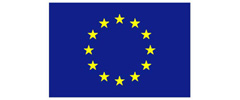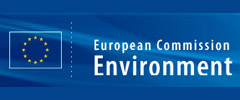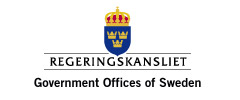Conflict at Rotterdam Convention meeting in Rome
A handful of asbestos and endosulfan producing states denying the right to information for other countries
28.10.2008 |Coalition of NGO's

Latest news
Chrysotile
asbestos not to be listed in PIC list in COP4
After 15 hours of deliberation it became clear that Chrysotile asbestos will not be listed in annex III "taking into account that the conference of the parties is not yet able to reach consensus on the whether to list chrysotile asbestos." It further states that decision on chrysotile asbestos is being deferred to COP 5. This paper is being circulated in the plenary and the plenary will decide on it. As this situation has been created not based on science, but on commerce and politics. Not a single country which opposed the inclusion (India, Krygy Rep, Kazakh, Vietnam, Ukraine, Pakistan, Philippines) has any object to the scientific process or document (Chemical review committee or DGD), but they all oppose it politically.
Press Release Coalition of NGO's:
At the COP 4 of the Rotterdam Convention
this week, about five countries are trying to dictate their will over some 120
other countries who are parties to the Convention. They aim to obstruct a
popular consensus requiring control over international trade of chrysotile
asbestos and endosulfan, derailing the full intention of the convention.
The Convention helps countries to protect their borders and health of their people, through an internationally legally binding requirement for information exchange about import or export of hazardous chemicals. It is not about banning substances: it is about obligatory consent before import or export of chemicals.

“This means that most developing countries currently have no information about hazardous chemicals entering their countries”, says Alexandra Caterbow, Chemical Coordinator of the NGO WECF, “because of this handful of countries, including Canada, India and Ukraine, a lot of people will die, as there has been no information about the dangers of the chemicals they used”
“At its creation, 10 years ago, the governments of the world agreed that they would follow the worldwide scientific consensus, as a basis of decision making, similar to the climate change convention, which works with its international panel on climate change. Thus, the Rotterdam Convention puts scientific evidence, not commercial interests, as the basis for decision making”, says Sascha Gabizon, Director of the NGO Women in Europe for a Common Future (WECF).
“The chemical scientific committee, in which scientists of all over the world participated, came to a consensus agreement to recommend to have chrysotile asbestos and the pesticide endosulfan be put on the PIC list of the Rotterdam Convention. This chemical scientific committee has over the last years studied all available evidence before coming to its conclusion, all countries, also the once opposing the decision, contributed”, says Dr. Castelman, Member of the Collegium Ramazzini.

“It is the high of hypocrisy for Canada, to block the right for countries to be informed about the hazards of chrysotile asbestos when we virtually no longer use it in Canada because it is so extremely hazardous”, says Kathleen Ruff coordinator of the Rotterdam Convention Alliance, continuing: “Canada spends millions of dollars promoting the sale of chrysotile asbestos in poor countries, yet, it denies this minimal right of countries to be informed of its hazards”. Ironically, if it were the other-way round, Canada would not accept it, even now the Canadian government wishes to strictly control the import of hazardous chemicals into Canada.
Despite the years of credible work by the international scientific community and the rigorous work of all United Nations agencies, India and Ukraine are distributing brochures at the Rotterdam Convention COP, entitled a.o. “Chrysotile Asbestos Saves Lives”. According to Dr. Soskolne of Alberta University Canada, “the data presented would never make it into a serious scientific journal, the methodologies are not transparent, and a lot of the information is false”.
Dr Barry Castleman says “Chrysotile asbestos is a widely used building material in many developing and transition countries. 70 years of scientific evidence shows a direct link between exposure to asbestos dust and cancer. The WHO states that every year more than 100,000 people die from chrysotile asbestos. As the asbestos related cancers normally take 20 or 30 years to develop in a person, the current high use of asbestos in developing countries will lead to hundred thousands or millions of deaths in a few decades”.
Madhumita Dutta, of the NGO Corporate Accountability Desk in India says “Millions of workers in India are getting exposed to asbestos everyday. India is not only failing to protect its own people but is obstructing other countries their right to protect their people.“

Remy Jonas Ahoyo, president of the NGO GAPROFFA, Benin, says “the pesticide endosulfan, kills 2 cotton producers each month in Benin during application period. It increases poverty, causes birth defects and reproductive harm, and degrades the environment. Benin has just taken the step to ban endosulfan, but, many other African countries have not, and they should at least be able to use the Rotterdam Convention to be informed about imports from India, China and the European Union (Germany)”.
“The convention should not be compromised by countries which have a conflict of interest, such as the case of India; the Indian government owns a big factory of Endulsofan”, says Karl Tupper, of Pesticide Action Network North America.
For more information, please contact:
ROCA: Kateleen Ruff
Canada kruff@bulkley.net
CAD: Madhumita
Dutta, India, madhu.dutta@gmail.com mobile: +91 9444390240
GAPROFFA:
Remy Jonas Ahoyo, Benin
ahoyol@yahoo.fr Mobile:
+229-21321314
WECF: Sascha
Gabizon, Netherlands,
Mobile
+49-172-8637586 Email: sascha.gabizon@wecf.eu
PAN: Eloise Touni, UK eloisetouni@pan-uk.org
Eco-Accord: Olga
Speranskaya, Russia speransk2004@mail.ru
IPEN: Mariann
Lloyd-Smith, Australia biomap@oztoxics.org
Mobile: 0413621557
Sridhar from Thanal, India and Kathleen from ROCA made powerful interventions at the high level segment at the PIC plenary on October 30.
Sridhar's intervention at the PIC Plenary
Related News
Meet the Winners of the Gender Just Climate Solutions Award at COP24
On the 70th anniversary of the Universal Declaration of Human Rights, we awarded Gender Just Climate Solutions Winners at the climate negotiations in Katowice, Poland
11.12.2018
Invitation: Gender Just Climate Solutions Award 2018
10 December, COP24 Katowice
04.12.2018
Getting to the Future We Want
4-7 November, Brussels: European Environmental Bureau’s (EEB) Annual Conference
12.11.2018
GoodFood4All
WECF and partners all over Europe start GoodFood4All Campaign
06.11.2018
#Ruralwomen: join our Women2030 campaign!
15.10.2018






































